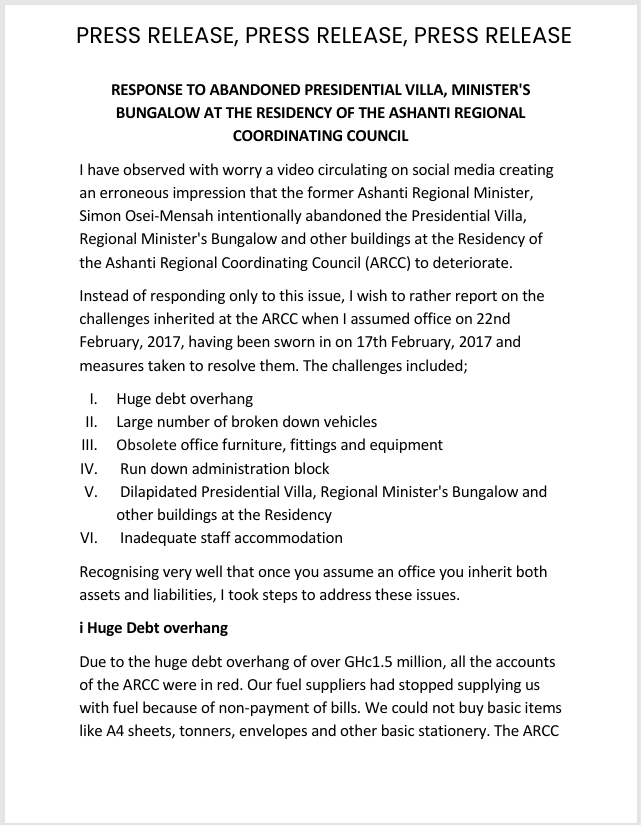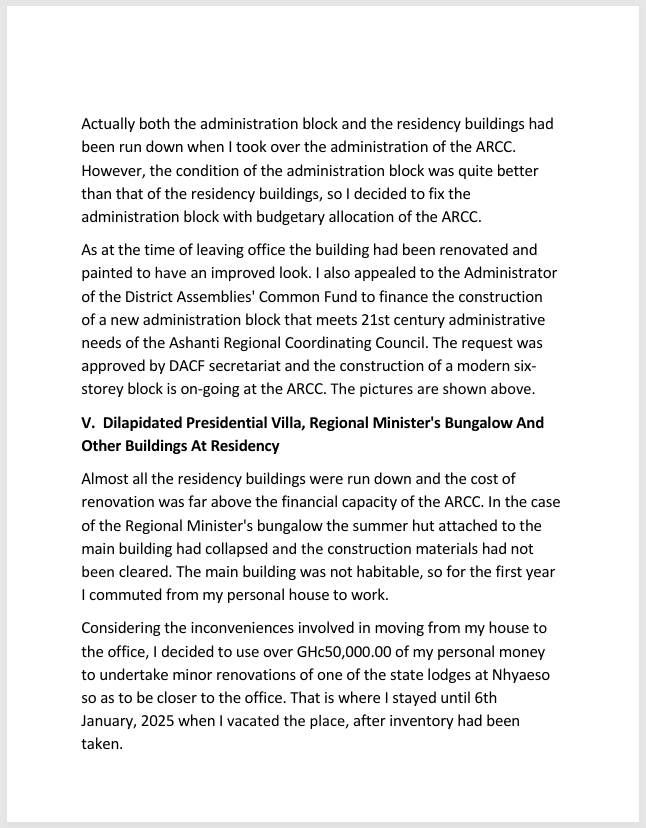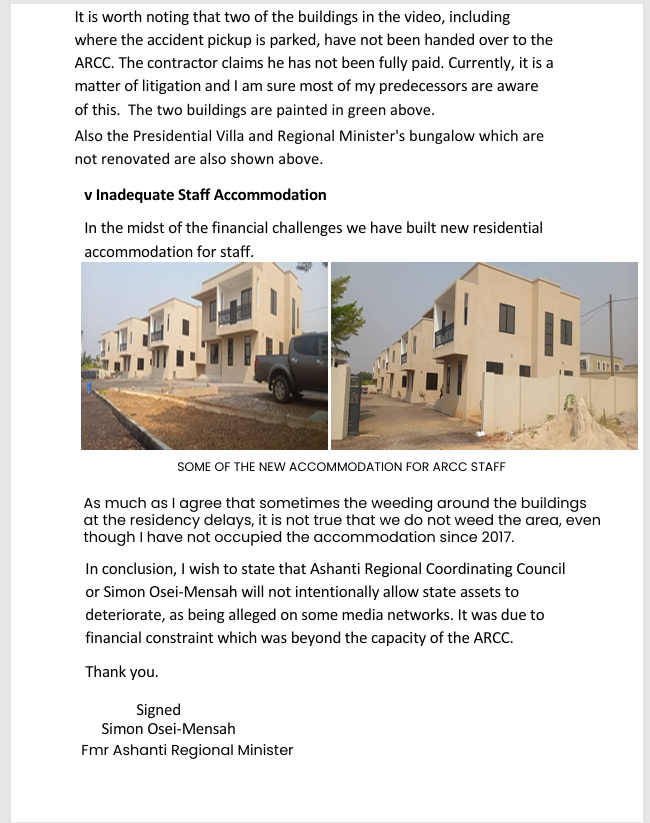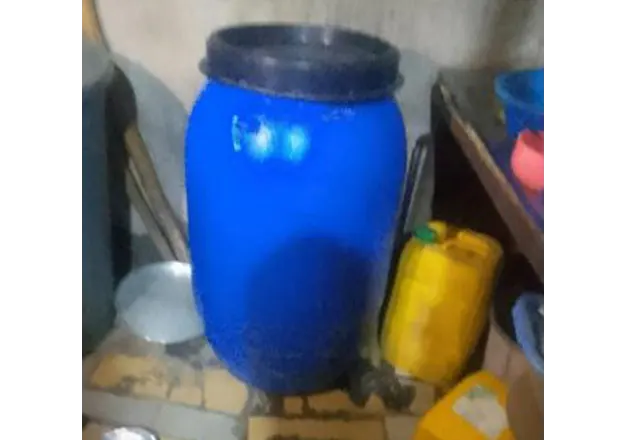 The 2024 withdrawal of Burkina Faso, Mali, and Niger from ECOWAS represents a significant challenge to regional integration in West Africa.
The 2024 withdrawal of Burkina Faso, Mali, and Niger from ECOWAS represents a significant challenge to regional integration in West Africa.
This research by The GITFiC analyzes the multifaceted drivers behind this unprecedented event, exploring the role of disagreements over democratic transitions, concerns about regional security mechanisms, and economic grievances.
The study examines the potential consequences of the withdrawals, focusing on disruptions to trade flows, foreign direct investment, and regional security cooperation, as well as the broader political and diplomatic ramifications for both the withdrawing states and the remaining ECOWAS members.
The emergence of the Alliance of Sahel States (AES) is also considered. The research concludes with practical policy recommendations for ECOWAS, the withdrawing states, and the international community to mitigate negative impacts and promote future regional stability and cooperation.
Introduction
The pursuit of regional integration has become a defining characteristic of contemporary international relations, driven by the understanding that collective action can yield significant economic, political, and security benefits.
In West Africa, the Economic Community of West African States (ECOWAS), established in 1975, has served as the primary instrument for regional integration.
Founded in the aftermath of decolonization, amidst the challenges of nation-building and the aspiration for greater economic self-sufficiency, ECOWAS aimed to foster economic cooperation and development among its member states.
Over the ensuing decades, the organization’s mandate has broadened considerably, expanding beyond purely economic objectives to encompass crucial dimensions of peace and security, conflict resolution, democratic governance, and human development.
ECOWAS has played a critical role in mediating conflicts in Liberia, Sierra Leone, Côte d’Ivoire, and other regional hotspots, demonstrating its commitment to maintaining stability and promoting peace.
The Regional Bloc has also made significant strides in facilitating the free movement of people, goods, and services, fostering intra-regional trade and cultivating a sense of shared regional identity.
Despite these notable achievements, ECOWAS has consistently faced a range of challenges, including economic disparities among member states, the slow pace of economic convergence, persistent security threats such as terrorism and cross-border crime, and recurring instances of political instability.
However, perhaps the most significant challenge to the bloc’s integrity in recent times has been the announced withdrawal of Burkina Faso, Mali, and Niger in January 2024.
This event marks a critical juncture in ECOWAS’s history and raises profound questions about the future of regional integration in West Africa.
While the ECOWAS treaty stipulates a one-year notice period for withdrawal, the joint declaration by the three military-led states signals a decisive shift in the regional landscape and presents a significant test for the bloc’s resilience.
This withdrawal, driven by a complex interplay of factors including disagreements with ECOWAS over democratic transitions, perceived interference in internal affairs, and a growing sense of regional realignment, represents a significant departure from the organization’s founding principles of unity and cooperation.
Implications
The implications of the withdrawals are far-reaching and multifaceted, extending beyond the immediate economic, security, and political consequences for the departing states and the remaining ECOWAS members.
This unprecedented situation not only disrupts established trade and investment patterns, but also undermines regional security cooperation, weakens existing conflict resolution mechanisms, and potentially damages the bloc’s credibility and influence on the international stage. For Burkina Faso, Mali, and Niger, the consequences could include economic isolation, reduced access to regional markets and financing, and diminished political leverage within the region and beyond. For the remaining ECOWAS members, the withdrawals could lead to trade disruptions, increased security risks, weakening of the bloc’s collective bargaining power in international forums, and a potential erosion of investor confidence.
Furthermore, this coordinated withdrawal raises concerns about the potential for a domino effect, potentially encouraging other dissatisfied member states to reconsider their membership and unraveling decades of progress in regional integration in West Africa.
The formation of the Alliance of Sahel States (AES) by the three withdrawing nations further complicates the regional dynamics.
Consequences of withdrawals
What are the specific economic, security, and political consequences of Burkina Faso, Mali, and Niger’s withdrawal from ECOWAS? By examining the potential disruptions to trade and investment flows, the implications for regional security cooperation and conflict resolution mechanisms, the broader political and diplomatic ramifications for both the withdrawing states and the remaining ECOWAS members, and the impact of the newly formed AES, our study aims to provide a comprehensive and nuanced analysis of the costs of this fragmentation. Our research is crucial for several reasons.
First, it fills a significant gap in the existing literature by providing a timely and detailed examination of the consequences of this unprecedented event in ECOWAS history.
Second, it offers valuable insights for policymakers, regional organizations, and international actors involved in promoting peace, security, and development in West Africa.
By understanding the potential costs and consequences of these withdrawals, policymakers can develop more effective strategies for mitigating the negative impacts, strengthening regional cohesion, and preventing further fragmentation within ECOWAS.
Thirdly the research contributes to broader academic debates on regional integration, providing a critical case study of the challenges and complexities of maintaining unity within a regional bloc in a dynamic and often turbulent global environment.
A comprehensive analysis of the motivations behind ECOWAS withdrawals
The withdrawal of Burkina Faso, Mali, and Niger from ECOWAS in 2024 represents a significant development in West African regionalism.
Understanding this decision requires a nuanced examination of the complex interplay of political, security, and economic factors, recognizing that these motivations are intertwined and mutually reinforcing.
Political drivers: Asserting sovereignty in the face of perceived interference
At the forefront of the justifications provided by the juntas in Burkina Faso, Mali, and Niger is the assertion of national sovereignty and a rejection of what they perceive as undue interference by ECOWAS in their internal affairs. This narrative has several key dimensions:
Rejection of ECOWAS’s democratic conditionality
Following the military coups in each country, ECOWAS imposed sanctions and demanded a swift return to civilian rule within specified timeframes.
The juntas viewed these demands as unrealistic, insensitive to their specific contexts, and an infringement on their right to manage their own transitions.
They argued that ECOWAS’s approach failed to acknowledge the complex security challenges they faced, which they cited as justification for the military interventions.
Narrative of external manipulation
The military regimes have consistently portrayed ECOWAS as being influenced by external actors, particularly France and other Western powers.
This narrative has resonated with segments of the population who harbour resentment towards former colonial powers and perceive Western involvement as neocolonialism. By framing their withdrawal as a rejection of external manipulation, the juntas have sought to bolster their domestic legitimacy and garner public support.
Distrust of ECOWAS institutions and leadership
The juntas have expressed distrust in ECOWAS institutions and leadership, accusing them of bias and a lack of understanding of the realities on the ground.
This distrust has been further fueled by ECOWAS’s imposition of sanctions and its refusal to recognize the legitimacy of the military regimes.
Consolidation of power and domestic legitimacy
By rejecting ECOWAS’s demands and asserting their sovereignty, the juntas have sought to consolidate their power and establish their legitimacy within their respective countries.
This strategy has been particularly effective in mobilizing nationalist sentiments and portraying the military regimes as defenders of national interests.
The critical role of security concerns
Security concerns have played a significant role in shaping the decision to withdraw from ECOWAS. The three countries have argued that ECOWAS has been ineffective in addressing the growing security threats in the Sahel region, particularly the spread of terrorism and violent extremism.
Perceived inadequacy of ECOWAS security responses
The juntas have argued that ECOWAS’s responses to the security crisis in the Sahel have been slow, inadequate, and poorly coordinated.
They contend that the organization has not provided sufficient support to their national security efforts and has failed to effectively address the cross-border nature of the threats they face.
Focus on counterterrorism and military solutions
The military regimes have prioritized counterterrorism efforts and military solutions to the security crisis.
This approach may diverge from ECOWAS’s broader focus on regional security, which includes conflict prevention, mediation, peacekeeping, and addressing other transnational crimes.
This difference in approach has created friction between the juntas and ECOWAS.
Search for alternative security partnerships
The withdrawal from ECOWAS has coincided with the strengthening of security ties with other actors, such as Russia (particularly through the Wagner Group).
This suggests a desire to pursue alternative security partnerships that are perceived as more effective in addressing their specific security concerns. The formation of the AES further solidifies this point.
The Contributing factor of economic grievances, unequal Benefits and the Impact of Sanctions
While less prominent in the official justifications for withdrawal, economic grievances have also played a contributing role.
Perception of unequal distribution of benefits
There is a perception in some quarters within these countries that they have not benefited proportionally from ECOWAS membership compared to other member states, particularly coastal nations. This perception is fueled by factors such as their landlocked status, limited economic diversification, and the impact of regional policies on their economies.
Exacerbation of economic hardship by sanctions
The economic sanctions imposed by ECOWAS following the coups have had a significant impact on these countries’ economies, further fueling resentment towards the organization.
While the sanctions were intended to pressure the juntas to return to civilian rule, they have also had unintended consequences, exacerbated economic hardship and potentially contributing to the decision to withdraw. This has created a sense of being punished by ECOWAS rather than supported.The Formation of the Alliance of Sahel States (AES): A New Regional Paradigm?
The creation of the AES by Burkina Faso, Mali, and Niger is a crucial element in understanding their withdrawal from ECOWAS. The AES suggests a desire to create a new regional security and cooperation framework that better addresses their specific needs and priorities.
Regional realignment and new alliances
The AES represents a significant realignment of regional power dynamics and the formation of new alliances. It suggests a desire to create a new regional bloc that is less influenced by external actors and more focused on addressing the specific challenges facing the Sahel region.
Emphasis on security cooperation
The AES places a strong emphasis on security cooperation, particularly in the fight against terrorism and violent extremism. This reflects the shared security concerns of the three countries and their desire to pursue more effective joint security strategies.
Potential for broader cooperation
While initially focused on security, the AES could potentially expand its scope to include other areas of cooperation, such as economic development, trade, and infrastructure. This could lead to the emergence of a rival regional bloc to ECOWAS, further fragmenting West African regionalism.
Economic implications of member state withdrawal
The economic impact of member state withdrawals from ECOWAS is a multifaceted issue that affects various aspects of the regional economy. One of the primary concerns is the disruption of intra-regional trade, which can have far-reaching consequences for economic stability.
When a member state withdraws from ECOWAS, it can lead to a decline in trade between the withdrawing state and other member states, resulting in reduced economic activity and potential losses for businesses and industries that rely on regional trade (Olorunsola, 2017).
Another significant economic impact of withdrawals is the decline in Foreign Direct Investment (FDI). Reduced economic integration can deter foreign investors who are attracted to the region’s large market and economic potential.
This can lead to a decline in investment flows, which can hinder economic growth and development. Furthermore, the loss of FDI can also lead to a decline in technology transfer, knowledge sharing, and managerial expertise, which are essential for economic development.
Withdrawals from ECOWAS can also hinder economic growth, affecting living standards and poverty reduction efforts.
Economic integration is a key driver of economic growth, as it allows countries to specialize in areas where they have a comparative advantage, leading to increased productivity and competitiveness.
When a member state withdraws, it can lead to a decline in economic growth, as the country may no longer have access to the regional market and may struggle to compete with other countries that are part of the regional economic community.
In addition to these economic impacts, withdrawals from ECOWAS can also lead to a loss of economic benefits that member states derive from regional integration. These benefits include increased trade, investment, and economic cooperation, which can lead to improved economic performance and development.
When a member state withdraws, it forfeits these benefits, which can have long-term consequences for its economic development.
The economic impacts of withdrawals are not limited to the withdrawing state; they can also affect other member states and the region as a whole.
For instance, a withdrawal can disrupt regional supply chains, leading to increased transaction costs and reduced economic efficiency. This can affect the competitiveness of businesses and industries in the region, leading to reduced economic growth and development.
In terms of sectoral impacts, withdrawals from ECOWAS can affect various sectors, including agriculture, manufacturing, and services.
Disrupted trade can affect agricultural exports and food security, while reduced regional market access can hinder manufacturing growth. The services sector, including financial and transportation services, can also be impacted by reduced regional integration.
To mitigate the economic impacts, ECOWAS can adopt various strategies. One approach is to diversify its trade partners, strengthening trade relationships with other regions to reduce dependence on a single market.
Investing in transportation networks and border infrastructure can also help to reduce transaction costs and improve regional trade.
Fostering regional production networks can promote regional value chains, while strengthening ECOWAS institutions can help to address withdrawal challenges (Cisse, 2018).
In conclusion, the economic impact of member state withdrawals from ECOWAS is a complex issue that affects various aspects of the regional economy.
It is essential for ECOWAS to adopt strategies to mitigate these impacts, including diversifying trade partners, investing in infrastructure, promoting regional value chains, and strengthening institutions. By doing so, ECOWAS can reduce the economic costs of withdrawals and promote economic growth and development in the region.
Political and security impact
The withdrawal of a member state from ECOWAS can have significant political implications for the regional organization and its member states.
One of the primary concerns is the potential loss of regional influence that the withdrawing state may experience. As a member of ECOWAS, a state has the opportunity to shape regional policies and decisions through its participation in the organization’s decision-making processes.
However, upon withdrawal, the state may no longer have a seat at the table, and its ability to influence regional decisions may be significantly diminished.
The withdrawal of a member state can also weaken regional governance, leading to a decline in the effectiveness of ECOWAS institutions. This can be particularly problematic if the withdrawing state has significant economic or political power, as its departure may create a power vacuum that can be difficult to fill.
Additionally, the withdrawal can create political instability, particularly if the withdrawing state has significant economic or political ties with other member states.
The withdrawal can also alter regional power dynamics, potentially leading to a shift in the balance of power among member states.
This can be particularly significant in a region like West Africa, where there are already significant power imbalances between states. The withdrawal of a powerful state can create opportunities for other states to fill the power vacuum, but it can also lead to increased competition and conflict.
Moreover, the withdrawal of a member state can undermine regional integration efforts, making it more challenging for ECOWAS to achieve its goals.
Regional integration is a complex and challenging process, requiring the cooperation and commitment of all member states. When a state withdraws, it can create significant challenges for the organization, particularly if the withdrawing state has significant economic or political power.
In terms of security, the withdrawal of a member state from ECOWAS can have significant implications for regional security cooperation.
One of the primary concerns is the potential disruption of regional security cooperation, making it more challenging for ECOWAS to respond to security threats.
This can be particularly problematic in a region like West Africa, where there are already significant security challenges, including terrorism, piracy, and organized crime.
Furthermore, the withdrawal of a member state can lead to a loss of intelligence sharing, which can undermine regional security efforts.
Intelligence sharing is a critical component of regional security cooperation, allowing states to share information and coordinate efforts to address security threats. When a state withdraws, it may no longer share intelligence with ECOWAS, potentially creating significant security risks.
The withdrawal of a member state can increase the risk of terrorism, particularly if the withdrawing state has significant terrorist threats.
Terrorism is a significant security challenge in West Africa, and the withdrawal of a state can create opportunities for terrorist organizations to exploit.
Moreover, the withdrawal can undermine regional peacekeeping efforts, making it more challenging for ECOWAS to maintain peace and stability.
The GITFiC’s findings
Our study found that member state withdrawals from ECOWAS have significant economic impacts, including disruptions to intra-regional trade, declines in foreign direct investment, and hindered economic growth.
Additionally, withdrawals weaken regional governance, disrupt regional security cooperation, and increase security risks.
It also revealed that withdrawals undermine regional integration efforts, leading to reduced economic benefits and increased transaction costs and identified a lack of strong institutions, inadequate infrastructure, and insufficient regional cooperation as key challenges facing ECOWAS.
Economic impacts
Disruptions to intra-regional trade: Withdrawals disrupt trade flows, reducing economic activity and revenue, declines in foreign direct investment as withdrawals deter investors, reducing capital inflows and hindering economic growth hindered economic growth with limited economic opportunities and slowing growth and development.
Political and security impacts
Weakened regional governance and undermine ECOWAS’s authority and effectiveness, disrupted regional security cooperation and compromise security collaboration with increasing risks.
Impacts on regional integration
Undermined regional integration efforts as it hinders progress towards economic union, reduced economic benefits, with limited access to regional markets and resources, with increased transaction costs.
Key challenges identified by The GITFiC
Lack of strong institutions, ECOWAS needs robust institutions to enforce policies and decisions, inadequate infrastructure: Poor infrastructure hinders trade, investment, and regional connectivity, Insufficient regional cooperation: ECOWAS member states must enhance collaboration to achieve regional goals.
Recommendations
To address these challenges, ECOWAS should strengthen its governance standards by enhancing institutional capacity, transparency, and accountability. ECOWAS should also enhance regional cooperation by promoting dialogue, consultation, and collaboration among member states.
Moreover, ECOWAS should foster economic integration through trade liberalization, investment promotion, and infrastructure development. Developing strategies to mitigate security risks, such as establishing robust security frameworks, intelligence sharing, and counter-terrorism measures, is also crucial. Effective implementation of these measures requires strong political will, commitment, and coordination among ECOWAS member states.
The GITFiCs recommendations for ECOWAS:
Establish a High-Level Contact Group: Immediately establish a dedicated contact group composed of respected elder statesmen, diplomats, and technical experts to engage directly with representatives from Burkina Faso, Mali, and Niger.
This group should focus on building trust, exploring areas of common interest, and identifying potential pathways for future cooperation, even outside of formal membership. Practical Action: Appoint specific individuals with proven track records in mediation and diplomacy within immediately.
They should also conduct a Comprehensive Sanctions Impact Assessment: Commission an independent assessment of the economic and social impact of sanctions on the withdrawing states.
This assessment should inform a revised sanctions policy that minimizes harm to civilian populations and prioritizes targeted measures against individuals or entities directly responsible for undemocratic actions. Practical Action: Launch the assessment within three months, with findings published within six months.
They should develop a Joint Security Action Plan with Sahelian States (Including AES): Recognizing the shared security threats, ECOWAS should propose a joint security action plan with all Sahelian states, including those in the AES.
This plan should focus on enhanced intelligence sharing, joint border patrols, and coordinated counterterrorism operations. Practical Action: Initiate technical-level meetings with security experts from all relevant countries within four months to develop the framework for the action plan.
Create a Regional Stabilization Fund: Establish a dedicated fund to support economic development and address the root causes of instability in vulnerable regions.
This fund should prioritize investments in education, job creation, and infrastructure development, with a focus on border regions and areas affected by conflict.
Practical Action: Secure initial funding commitments from member states and international partners within six months and establish clear criteria for accessing the fund.
Enhance Transparency and Accountability of ECOWAS Institutions: Implement measures to enhance the transparency and accountability of ECOWAS institutions, including clearer communication of decisions, greater involvement of civil society in regional processes, and independent oversight mechanisms. Practical Action: Conduct an internal review of existing governance structures within six months and implement agreed-upon reforms within one year.
The GITFiC’s recommendation for the withdrawing States
Establish Technical Working Groups with ECOWAS on Specific Issues: Create technical working groups with ECOWAS counterparts to address specific issues of mutual concern, such as cross-border crime, humanitarian assistance, and trade facilitation. This allows for practical cooperation even without formal membership. Practical Action: Propose the formation of these working groups within two months, identifying specific areas of cooperation.
Develop National Transition Plans with Clear Timelines and Benchmarks: Develop and publicly commit to clear national transition plans with specific timelines and measurable benchmarks for returning to constitutional order.
This demonstrates a commitment to democratic principles and can help rebuild trust with ECOWAS and the international community.
Practical Action: Publish detailed transition plans within three months and establish independent monitoring mechanisms to track progress.
The GITFiC’s recommendation for the international community:
Provide Financial and Technical Support for ECOWAS Mediation Efforts: Provide direct financial and technical support to ECOWAS’s mediation efforts, including funding for logistical support, expert consultants, and communication initiatives. Practical Action: Establish a dedicated funding mechanism for ECOWAS mediation activities within three months.
Coordinate Development and Security Assistance with Regional Actors: Ensure that all development and security assistance to the Sahel region is coordinated with both ECOWAS and the AES to avoid duplication of efforts and maximize impact.
This requires establishing clear communication channels and coordination mechanisms between international partners and regional actors.
Practical Action: Hold regular coordination meetings between international partners, ECOWAS, and AES representatives to align strategies and ensure effective use of resources.
Towards a new era of pragmatic regionalism
The current situation calls for a shift towards a more pragmatic and flexible approach to regionalism in West Africa. This requires recognizing the diverse needs and priorities of all states, prioritizing dialogue and cooperation on shared challenges, and adapting regional institutions to meet the evolving needs of the region.
Conclusion
The study underscores the profound economic, political, and security implications of member state withdrawals on the Economic Community of West African States (ECOWAS). The findings highlight the imperative for ECOWAS to adopt proactive measures to mitigate these challenges, ensuring the region’s stability, security, and sustainable development.
By strengthening governance standards, enhancing regional cooperation, fostering economic integration, and developing strategies to mitigate security risks, ECOWAS can promote regional prosperity, address complex challenges, and enhance the lives of West African citizens.
Effective implementation of these measures requires strong political will, commitment, and coordination among ECOWAS member states.
This involves fostering a culture of transparency, accountability, and good governance, as well as investing in institutional capacity building and infrastructure development.
Moreover, ECOWAS must prioritize regional cooperation, dialogue, and consultation to address shared challenges and leverage collective strengths.
Ultimately, a resilient and effective ECOWAS is crucial for promoting regional prosperity, ensuring peace and stability, and addressing the complex challenges facing West Africa.
By adopting a proactive and collaborative approach, ECOWAS can overcome the challenges posed by member state withdrawals and emerge stronger, more united, and more determined to achieve its regional integration goals
Regional integration is not a destination, but a journey. It requires constant effort, commitment, and cooperation among nations to achieve sustainable development and prosperity
“The future of Africa is not in fragmentation, but in unity.” – Osagyefo Kwame Nkrumah PhD
By Isaac Osei Owusu
Source: GNA



 The 2024 withdrawal of Burkina Faso, Mali, and Niger from ECOWAS represents a significant challenge to regional integration in West Africa.
The 2024 withdrawal of Burkina Faso, Mali, and Niger from ECOWAS represents a significant challenge to regional integration in West Africa.
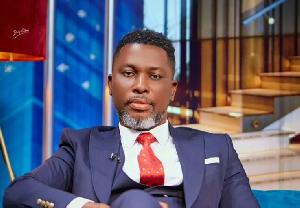


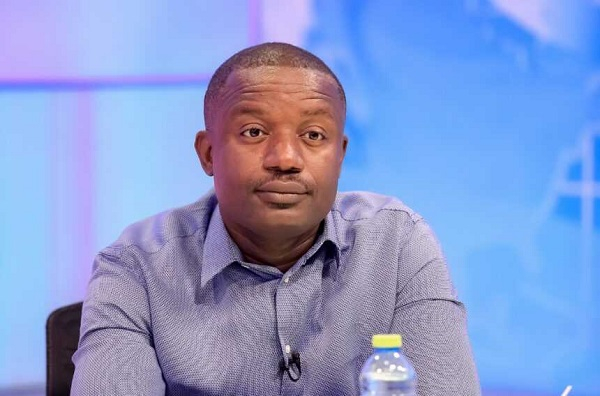
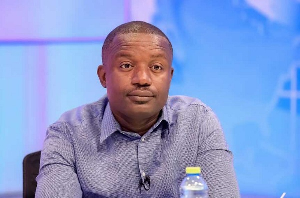
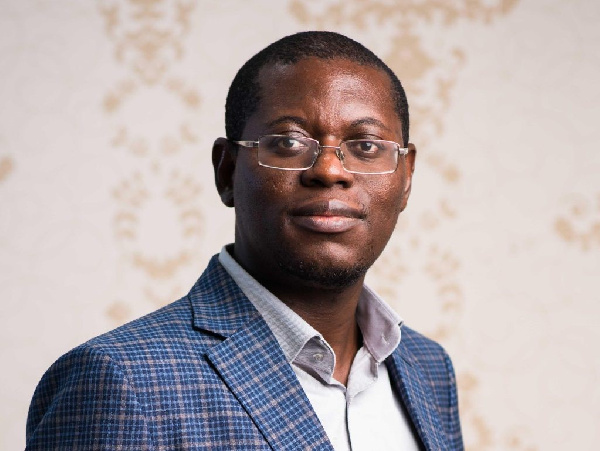
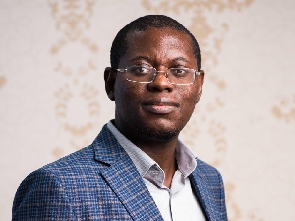

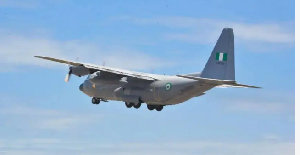
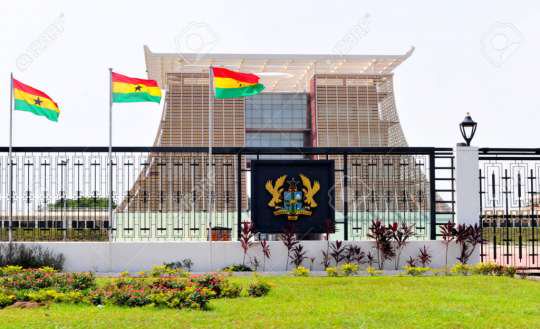






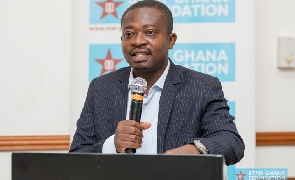






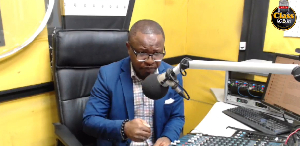

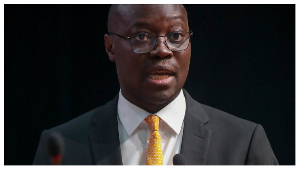





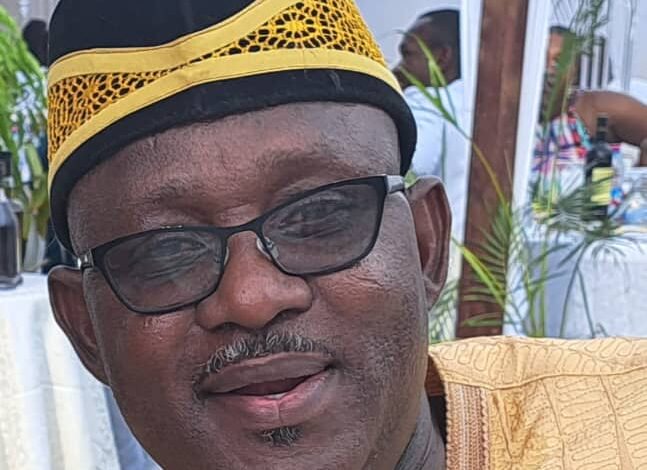


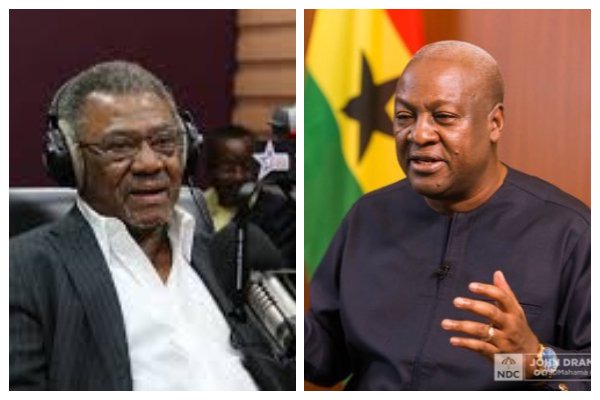








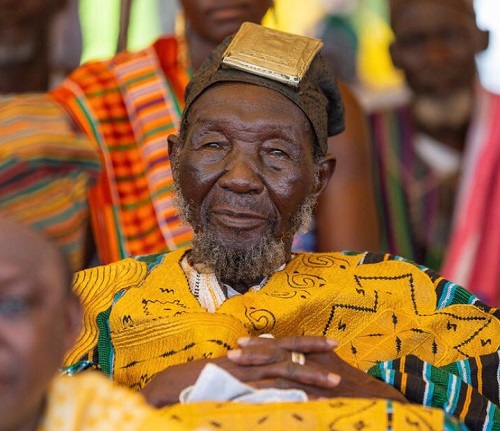

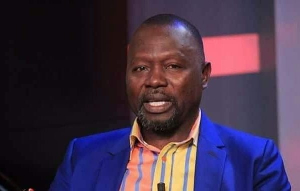



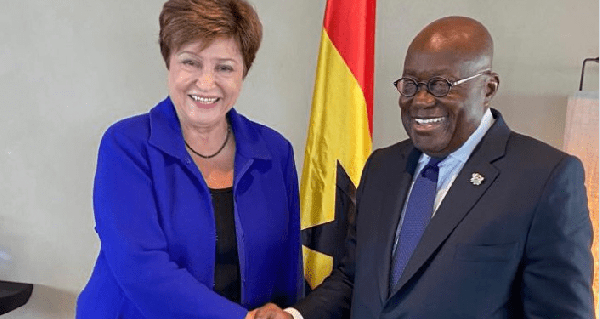
![MD of IMF, Kristalina Georgieva [L] and former President Akufo-Addo MD of IMF, Kristalina Georgieva [L] and former President Akufo-Addo](https://cdn.ghanaweb.com/imagelib/pics/301/30160025.295.jpg)



